From Wednesdays to Sundays when I’m home, you’ll find me walking into the zendo as the dawn breaks over the mountains, holding my folding bench and rakusu higher than my heart, bowing to Manjushri on the altar. Every morning I try to arrive with body, mind, my whole being.
I find my seat, place my bench on the zabuton, stand again. I bow to the cushion— thank you in advance for holding my practice.
Then turning toward to the rest of the community—thank you for holding me up.
I sit. And most days, one question finds me. “What is your original face, before your parents were born?”
Untitled by Emma Kunz
Pointing to essence beyond ego and identity, this inquiry originated in Ch’an (which later became known as Zen in Japan), directing us toward a heart-based, primordial, non-conceptual understanding of reality.
I wish I could sit and talk to Huineng, (638–713), our sixth Zen ancestor, a central figure in the development of Ch’an Buddhism, who asked this question. Embedded in the context of the Tang Dynasty in 7th century China, amidst cultural, economic, and political achievements, and significant social change and intellectual ferment—not dissimilar from right now, Huineng invites us to tap into what is beyond the self, beyond personal history.
Each time this inquiry emerges in my sitting, I just breathe. I try to settle myself to see beyond the thoughts and memories rooted in time, place, identity—to directly experience the unconditioned, uncreated aspect of me.
Your "original face" refers to your true nature, your original self, untouched by the influences of family, culture, even the sense of personal identity we develop over time. What is that?
As Norman Fischer says in The World Could Be Otherwise, when we ask that question, we begin to “take ourselves less seriously as the ‘person’ and more seriously as the bodhisattva that we are.”
Exploring the core concepts of emptiness from the Prajnaparamita texts in the talks at Upaya Zen Center these recent weeks moved me to open Nagarjuna’s Mulamadhyamakakarika—my aim is to see past the current catastrophe to learn the source teachings of emptiness. To practice seeing without distortion just to what is present. Whether in my personal life, family, my friendships, or offerings of practice.
Can I just quiet my mind enough to just be where I am.
Can I compassionately study my habit to complicate things.
Can I practice being of benefit to others without attachment to outcome.
Engaging with a direct experience of this original face, without egoic constructs, to glimpse the world afresh, each time you sit, that’s what’s happening.
It’s hard to see ourselves so plainly, and with kindness. Our true nature can’t be found with the mind, nor in personal history or even lineage—original face transcends individual experience; it’s the foundation of all things.
Having committed to consistently sitting, something wild happened last week that opened my heart to this original face.
A few breaths into the Thursday sit, during which I’m jikido or timekeeper, I’m staring at the legs of the altar when suddenly I’m back in the house where my parents lived before I was born. Somehow I’m located in the energy of that time when my parents, twenty-two and innocent, loved one another deeply, and came together—the strangest thing I’ve personally ever experienced in zazen, and yet.
Is this time travel?
Nothing explicit was witnessed, I was just in that place and time, in the energy of their love. Tears fall onto my hands, my pericardium feels stretched out, my somehow-lighter heart floats skyward in my chest, my entire being becomes lighter, all memories and doubt dissipating like the thousands of cypselae on a freshly picked dandelion puff on a spring afternoon in my yard.
Poof. I’m gone; some minutes pass.
Words arrive. Mind exerts itself on the precious field of practice. Instead of being happy or sad about it, I go back to the breath in a feeble attempt to get some space around the brain’s concepts.
And now it’s 7:40am, I pull it together.
Chanting, standing, bowing, holding nothing.
Do you experience contact with the past?
Do you believe it’s possible?
And to what are you committing in your own practice these days? I’d love to hear.
Paid subscribers ~ thank you.
Our next writing session is on Wednesday April 2nd, at 12pm Eastern, our monthly gathering. Please bring a short piece—four hundred words or fewer—to walk us into your space, your home; you’re welcome to share with the group if you wish.
Welcome to Holding Nothing; thank you for being here. If you choose a paid subscription, you’ll have access to the entire archives, you’ll be able to comment on all posts, and also attend our monthly Live Gatherings, during which we have talks, writing and discussion time. If you have financial restriction, scholarship subscriptions are available. Don’t hesitate to ask.
And thank you, Yoga Off East. This week’s visit to Durham, NC is extraordinary, at the midweek mark. Your community’s open arms are lighting up my heart—seeing the painting in place is a gift.
Commissioned for Yoga Off East, Durham, NC; Boundlessness, 2024.
Amanda Giacomini’s 10,000 Buddhas on the studio wall, the Art of Attention Deck (foreground) & Daily Ceremony Deck.
Traveling morning tea—home wherever I am.
Thank you for being here.


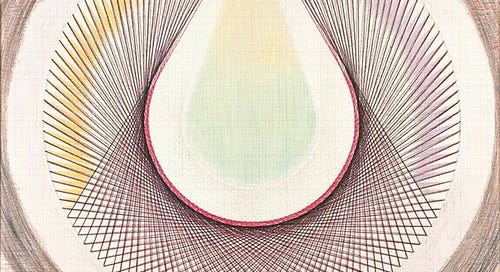




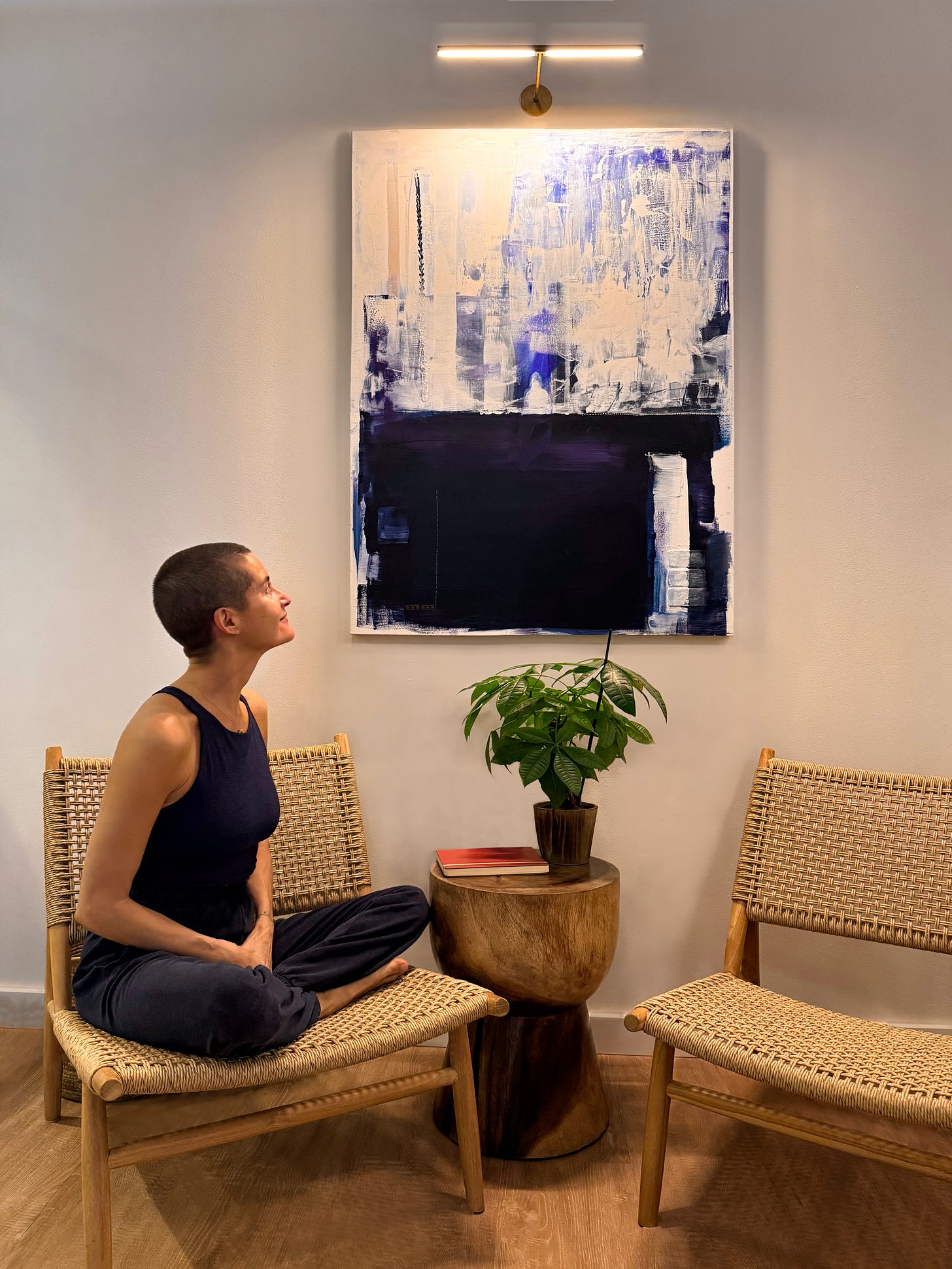
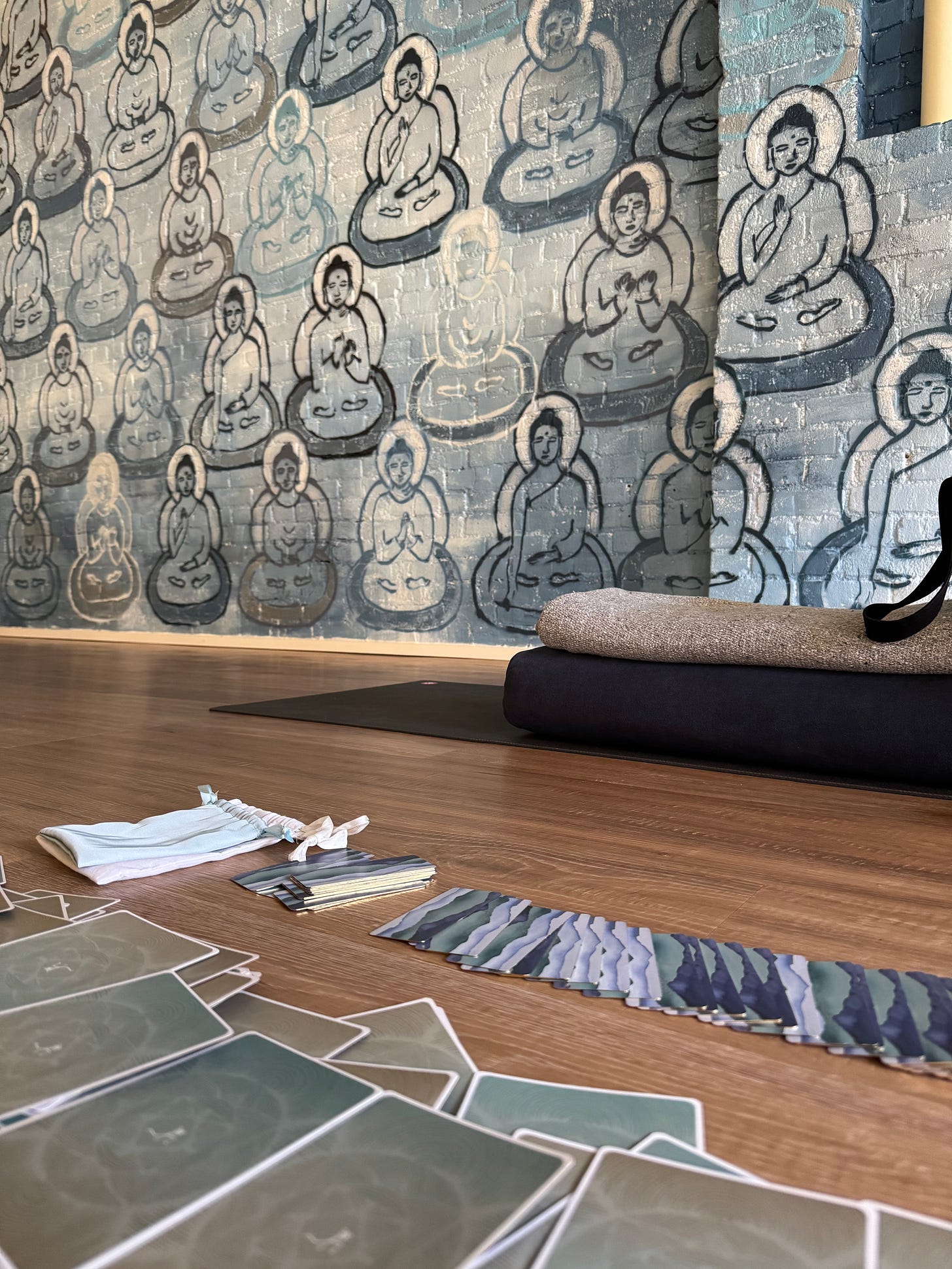
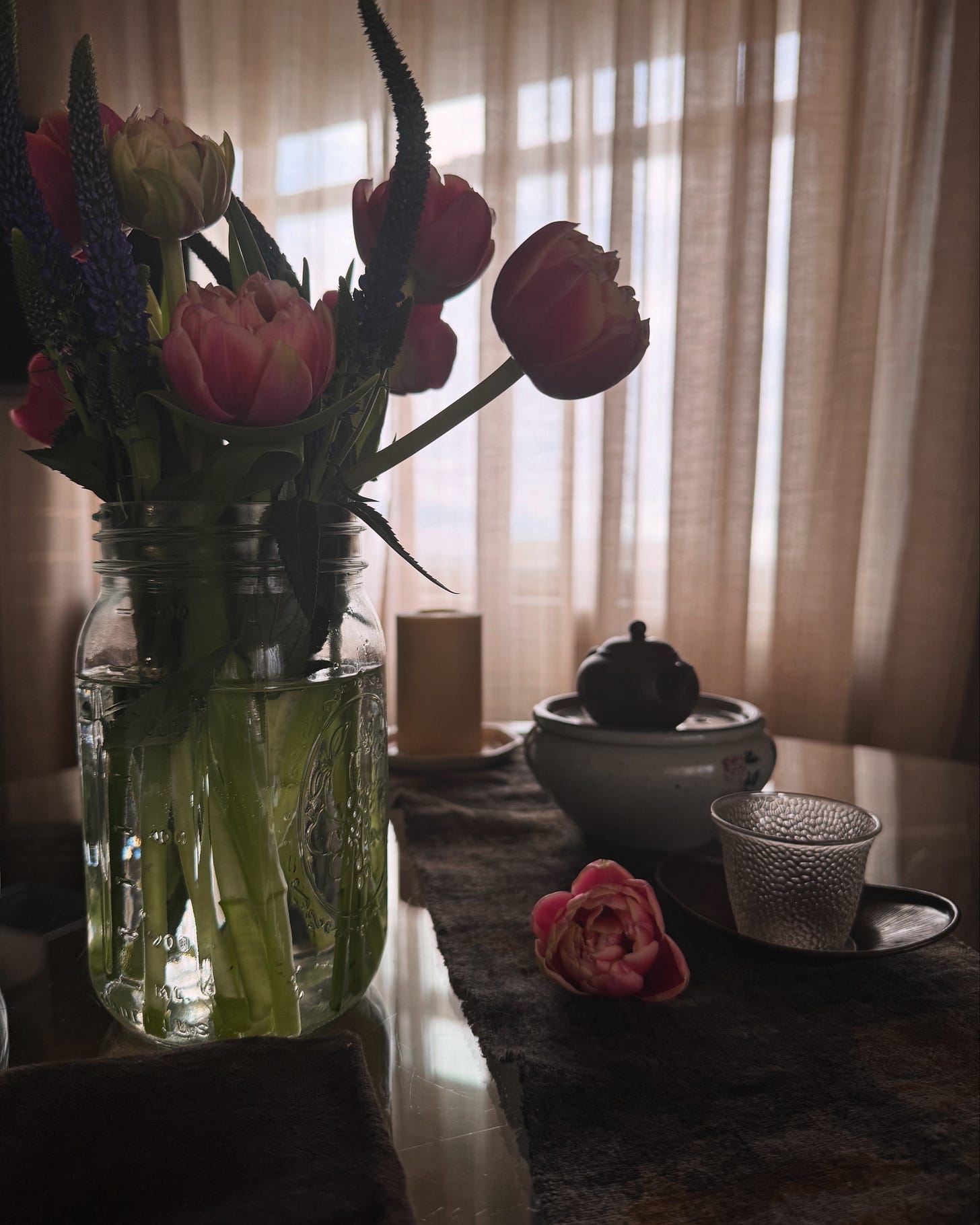




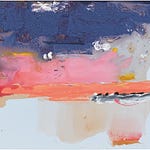
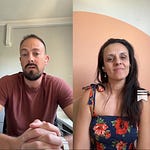



Share this post